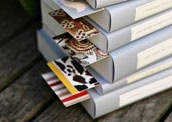- All our books
- Categories:
- Abroad
- Adultery
- America
- Architecture
- Biography
- Bloomsbury
- Childhood
- Cookery Books
- Country Life
- Diaries
- Education
- Family
- Fathers
- Gender and Race
- Grandmothers
- History
- House and Garden
- Humour
- Ireland
- London
- Love Story
- Men (books about)
- Men (books by)
- Mothers
- Poetry
- Politics
- Science Fiction
- Scotland
- Sex
- Shopping
- Short Stories
- Single Women
- Social Comedy
- Suffragettes
- Teenagers (books for)
- Thrillers
- Translations
- Victoriana
- Widows
- Woman and Home
- Women’s Place
- Working Women
- WWI
- WWII
- Young Love
- Persephone Merch.
- Audiobooks
- Book Tokens
- Notebook
- Persephone Classics
- Catalogue
Find a book

A Book a Month
We can send a book a month for six or twelve months - the perfect gift. More »
Order This Book

WITH A PREFACE BY LUCY MANGAN
294pp
ISBN 9781910263174
Young Anne (1927), PB No. 127, was Dorothy Whipple’s debut novel. It is about the first twenty years of a girl’s life: she lives at home mostly looked after by the kindly Emily, goes to school, falls in love and finally marries someone else. So far, so unoriginal. Yet it is original. There is something about the description of Anne’s life which is quite simply superb. It is also (and this is a plot spoiler) a little bit heart-wrenching. Anyone who has read DW’s previous books will know that the young man she loved, George Owen, was killed in WW1. This is a tribute to him and must have been written with many tears. (The young man in the novel is even called George.)
DW could not be explicit about Anne’s marriage because it is so much based on her own. For there is among her unpublished papers a poignant fragment of diary dated September 21st 1917 (she had married Henry Whipple, 24 years her senior, six weeks beforehand). It says: ‘I want to write, I want to express myself somehow. I want to live – to live hard – and life offers me nothing but an endless round of meals, interminable evenings, and eventless days... Liberty depends on wealth... a woman is a slave even though unmarried...married she is always a slave. I have given up freedom, youth, health and solitude and companionship and for what?’ (But after having written this she adds, ‘I feel wonderfully better for having written all that!’)
As Lucy Mangan says in her Persephone Preface: in the novel DW’s ‘unmistakable voice is already there. The book that would start her on her career as a novelist is written with all the sense of command and restraint that her fans (then and now) would come to know and love so well. The temptation of the debut author is to overwrite – to show all that you can do, all at once and repeatedly, so that people Get The Message. We have all read them and been exhausted by them. But Whipple, from the off, keeps her ego and her insecurities in check. As in all her later, more experienced works, she is not a showman but a patient, disciplined archaeologist at a dig, gently but ceaselessly sweeping away sandy layers of human conventionality and self-deception, and on down to deeper pretences to get at the stubborn, jagged, enduring truths about us all beneath.’
There is a passage among DW’s surviving diaries that reads: ‘The proudest moment of my life was that in which I put on a new sailor suit, brown kid gloves and a high school hat. I would have exchanged it for no crown on earth or in heaven either. I had reached the zenith of my baby ambitions. I was then ten years old, and I felt I had started on life.’ (The photograph of her looking proud and happy has survived and is above.) It is the fifteen years of life between this momentous event and her marriage that is at the heart of Young Anne, and although it is not an overtly ‘feminist’ book, like so many of our novels it is deeply feminist in its description of what does not happen to women and what should happen. DW should have gone to university or at least had a career: the description of Anne receiving her first wages is touching and unforgettable. Lucy Mangan writes: ‘The dignity offered by work and the liberation of a personal pay packet is of course explored in far more depth in High Wages, but it has its first celebration here in Anne’s delight at her first job...These are the Whipple moments I most love: the recording of women’s experiences and revelling in their triumphs. As Anne peers in at her four pound notes I feel I am peering down the line of distaff history, connecting those first moments of independence (even when your dependence had previously been invisible to you) wherever women have found them, and finding a link through the ages.’
Endpaper
The endpapers are taken from a machine-woven silk and linen furnishing fabric originally designed by George Walton in the 1890s and marketed in 1925 as 'Summer Flowers' by Sundour. In a private collection.
Picture Caption
Dorothy Stirrup (later Whipple) aged 10.
Read What Readers Say
Becky Barrow, ‘The Sunday Times’
From First Page to Last via Instagram
Caroreadsbooks via Instagram
Categories: Childhood Education Family Love Story Young Love
